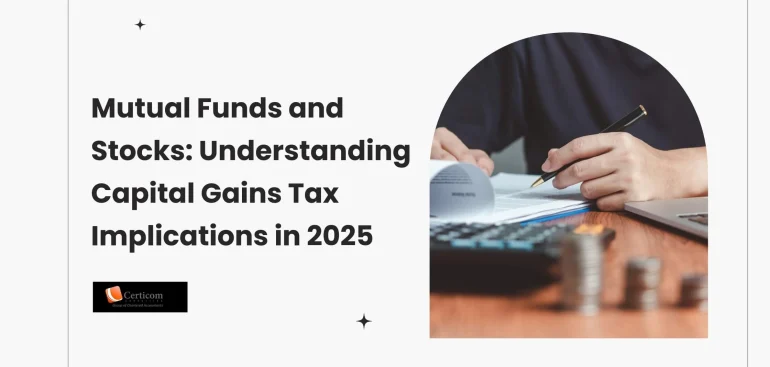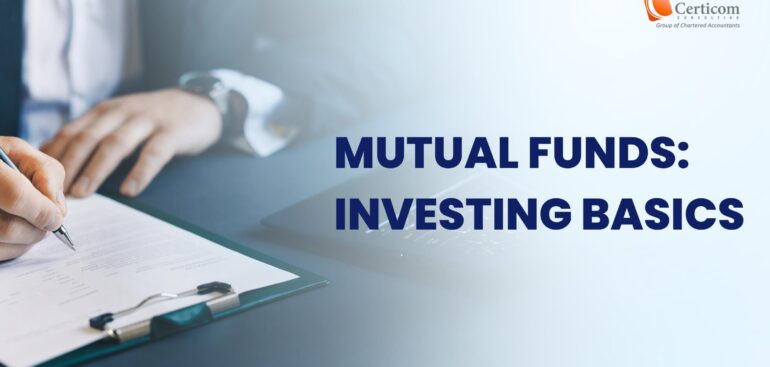Mutual Funds and Stocks: Understanding Capital Gains Tax Implications in 2025

Investing in mutual funds and stocks is a time-tested route to building wealth. However, returns from these assets attract capital gains tax, and staying informed about tax rules is crucial to avoid unexpected liabilities. As of 2025, the tax landscape for investors in India continues to evolve. This article breaks down how capital gains on stocks and mutual funds are taxed in 2025, the latest updates, available exemptions, and smart strategies to lower your tax burden.
Understanding Capital Gains
Capital gains arise when you sell a capital asset—like shares or mutual fund units—for a price higher than what you paid. Based on how long you hold the asset before selling, gains are classified as:
Short-Term Capital Gains (STCG)
Equity instruments: Sold within 12 months.
Debt instruments: Sold within 36 months.
Long-Term Capital Gains (LTCG)
Equity instruments: Held for more than 12 months.
Debt instruments: Held for more than 36 months.

Capital Gains Tax on Stocks
Listed Equity Shares
STCG: Taxed at 15% under Section 111A.
LTCG: Taxed at 10% on gains exceeding ₹1 lakh/year under Section 112A (no indexation benefit).
Unlisted Shares
STCG: Taxed as per your income tax slab.
LTCG: Taxed at 20% with indexation under Section 112.
Capital Gains Tax on Mutual Funds
Equity-Oriented Mutual Funds (≥65% equity exposure)
STCG: Taxed at 15%.
LTCG: 10% tax on gains above ₹1 lakh/year (no indexation).
Debt Mutual Funds
As per the Finance Act 2023, debt mutual funds purchased on or after April 1, 2023, lose indexation benefits.
All gains are taxed at slab rates—no matter the holding period.
Hybrid Mutual Funds
Equity-oriented hybrids: Follow equity fund taxation.
Debt-oriented hybrids: Taxed as debt funds.
What’s New in 2025?
While major changes came via the 2023 amendments, the 2025 updates include:
Possible revision of LTCG tax thresholds.
Potential return of indexation for specific instruments.
Revised tax exemptions for retirement-focused products.
Investors should monitor future Budget announcements for formal updates.
Exemptions & Deductions
Some ways to reduce tax impact on capital gains:
Section 54F: Exemption on LTCG if proceeds are invested in a residential house.
Set-Off of Losses:
STCL can be set off against STCG and LTCG.
LTCL can only offset LTCG.
Losses can be carried forward for up to 8 years.
Tax-Saving Strategies
Tax Harvesting: Book profits up to ₹1 lakh annually in LTCG and reinvest to reset cost.
Hold for Long-Term: To avail lower LTCG rates.
ELSS Funds: Offers tax deduction under Section 80C (up to ₹1.5 lakh annually).
Grandfathering Clause: Gains till Jan 31, 2018, are exempt under earlier rules.
Taxation Rules for NRIs
For Non-Resident Indians investing in Indian capital markets:
Equity Funds:
STCG: 15%
LTCG: 10% beyond ₹1 lakh/year
Debt Funds: Taxed at slab rates (no indexation benefit).
TDS Applicable: Tax is deducted at source; filing a return is required for refunds/adjustments.
Reporting & Compliance
ITR Filing: Use ITR-2 or ITR-3, depending on your income sources.
Advance Tax: Required if your capital gains are substantial to avoid interest under Sections 234B/234C.
AIS & Form 26AS: Reconcile your capital gains data before return filing to avoid mismatches.

Budget 2025 Update – ULIP Tax Relief for Senior Citizens
A key takeaway from the Union Budget 2025:
ULIP Maturity Exemption under Section 10(10D) continues for senior citizens (60+) even if the annual premium exceeds ₹2.5 lakh, provided:
The policy was purchased before April 1, 2025, or
It’s their only ULIP with sum assured ≥10x the premium.
For policies bought on/after April 1, 2025, ULIP maturity proceeds are taxable as capital gains for non-senior citizens. However, senior citizens are allowed an exemption on gains up to ₹5 lakh/year under the revised Section 10(10D).
This measure encourages long-term, retirement-focused investments for seniors.
Read More: Income Tax Return 2025: What’s New in the ITR-2 Filing Process for AY 2025-26
Capital gains taxation in 2025 remains a vital factor in investment planning. While equity-related gains continue to attract concessional tax rates, changes in debt fund rules and new ULIP provisions highlight the importance of staying updated. Smart strategies like tax harvesting, reinvestment planning, and understanding exemptions can significantly improve post-tax returns. When in doubt, consult a qualified tax advisor to align your investments with the latest tax laws.
Related Post
Cost Inflation Index for FY 2025-26: Impact on LTCG Tax
Loan Interest Deductions: How to Claim and Avoid Tax Scrutiny
NRI Tax Filing in India: A Guide to Rent, Capital Gains & Interest Income
Book A One To One Consultation Now For FREE
How can we help? *












